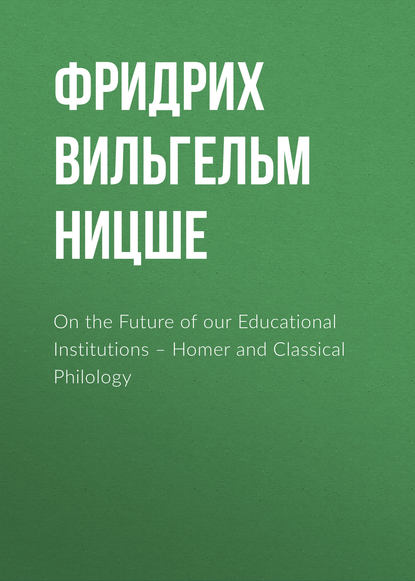 Полная версия
Полная версияOn the Future of our Educational Institutions – Homer and Classical Philology
Hegel's. – TR.
11
A German students' association, of liberal principles, founded for patriotic purposes at Jena in 1813.
12
Weber set one or two of Körner's "Lyre and Sword" songs to music. The reader will remember that these lectures were delivered when Nietzsche was only in his twenty-eighth year. Like Goethe, he afterwards freed himself from all patriotic trammels and prejudices, and aimed at a general European culture. Luther, Schiller, Kant, Körner, and Weber did not continue to be the objects of his veneration for long, indeed, they were afterwards violently attacked by him, and the superficial student who speaks of inconsistency may be reminded of Nietzsche's phrase in stanza 12 of the epilogue to Beyond Good and Evil: "Nur wer sich wandelt, bleibt mit mir verwandt"; i. e. only the changing ones have anything in common with me. – TR.
13
Of course Nietzsche saw afterwards that this was not so. – TR.
14
Nietzsche perceived later on that this statement was, unfortunately, not justified. – TR.

